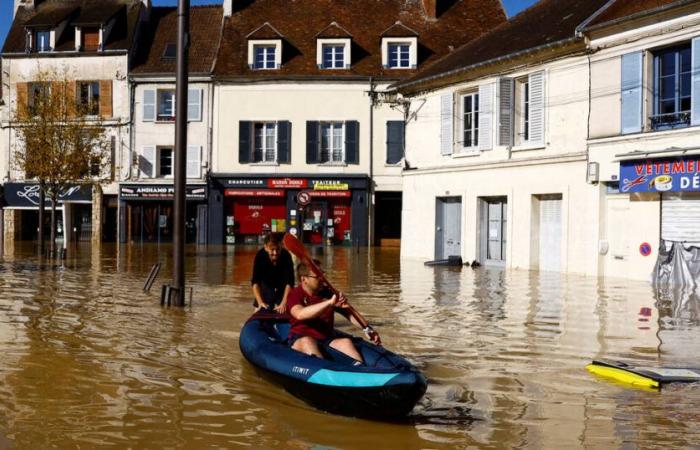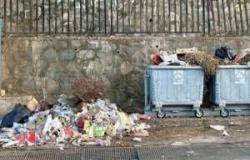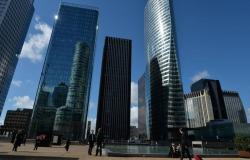
Stormy episodes followed one another in October in France, leading to torrential rains and floods. A decree published this Tuesday, November 5, qualified these events which affected hundreds of towns as a natural disaster and thus allows insurance compensation.
A decision which will pave the way for insurance compensation for the victims. The state of natural disaster was recognized in nearly 380 municipalities, according to a decree published in the Official Journal this Tuesday, November 5, mainly for the exceptional floods that occurred throughout the month of October and which affected the South-East, the Center-East and the Paris region. The victims of the eleven departments concerned have thirty days to contact their insurance. Compensation will then occur within three months, with the payment of an advance within two months, specifies the Service Public site.
The municipalities concerned are located in Ardèche, Rhône, Loire, Alpes-Maritimes, Yvelines, Essonne, Lozère, Loire-Atlantique, Eure-et-Loir, Haute-Loire and Corrèze.
Extreme weather events followed one another in October, with a first storm on October 8. Kirk swept across France affecting 7 departments in the northern half, particularly Seine-et-Marne, but also causing flooding in the Alpes Maritimes.
Then, from Wednesday to Friday October 18, an intense Cévennes episode hit the South-East and all the way to the Center-East. The Rhône, Loire, Haute-Loire, Ardèche, Lozère and Alpes-Maritimes faced an unprecedented flood for two days. In total, more than a thousand people were evacuated; roads, railways and schools were closed and several thousand homes were deprived of electricity. This was the episode “the most intense ever recorded over two days since the beginning of the 20th century”according to Météo France.
At the same time, and only a week after the passage of Storm Kirk, Ile-de-France was hit by an intense storm on the night of October 17 to 18. Yvelines and Essonne were particularly affected by these torrential rains, causing significant flooding and mudslides. As a result, respectively 46 and 16 municipalities in the Paris region were recognized as being in a state of natural disaster on November 5.
Global warming
After recording the rainiest month of September in twenty-five years, Météo-France recorded in October an excess of rain of almost 40% compared to normal. The meteorological institute subsequently made the connection between the increase in natural disasters and global warming.
“The more we warm the earth with our fossil emissions, the more extreme rains there will be,” lamented Stefan Rahmstorf, professor at the Potsdam Research Institute and member of the IPCC, the Intergovernmental Panel on Climate Change. Ditto for the French climatologist Christophe Cassou: “each fraction of warming contributes to this intensification”.





